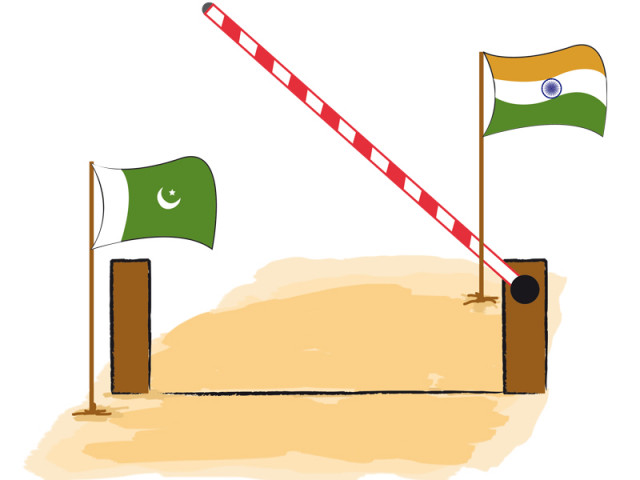Thorny ties: Research bodies back Pakistan-India trade
Report by Woodrow Wilson International Centre suggests how both countries can prosper via cooperation.

Global research and financial institutes along with local communities of India and Pakistan are stressing on trade normalisation between the true countries.
Keeping in view the history of both nations, experts believe trade should not be mixed with political and territorial matters, as these issues do not only hamper bilateral trade but are responsible for the region not performing to its optimum level.
The private sector of both countries should play a prominent role, experts urged.
“A bilateral commission should be set up to oversee Pakistan-India economic relationship with focus on addressing non-tariff barriers, opening up more land routes for trade and promoting cross-border travel,” said a report issued by Woodrow Wilson International Centre on Pak-India trade.

As per the report, a regional trade forum, comprising of private sector, academia and media should be formed to monitor the bilateral commission. The private sector must be on the front line of trade liberation. It’s a powerful shaper of public opinion on trade, public-private partnerships, particularly those that facilitate interconnectivity through infrastructure improvements.
“In South Asia, economic relations are better served by the action-oriented, proactive, problem solving approach favored by the private sector than by the more plodding, reactive and bureaucratic style associated with governments.”
The current bilateral trade volume is around $2.4 billion. Experts believe that if trading issues are resolved, this volume could reach $5 billion in a couple of years. Trade normalisation could help boost this figure to up to $40 billion mainly due to the increased informal trade activities via smuggling or third country, which is estimated to be around $10 billion annually.
“Economic hardship is the driver of Pakistan’s widespread violence, yet trade can fuel growth in economically depressed areas. Economic liberalisation could help ease security fears, and experts estimate that trade volume in the $10-to-$15-billion range can make gains powerful enough to outweigh geostrategic concerns.”
As for concerns raised by different sectors of Pakistan, especially pharmaceutical, auto and agriculture, the report suggested that India, for a short term, must increase exports to Pakistan. This would include machinery and technology that Pakistan has been importing from other countries at a higher price. Also, they must hold back on exports that could hurt Pakistan’s small and medium businesses.
While, on the other hand, Islamabad should use its increased revenues from tariff collection, custom duties to compensate those who do not benefit from trade normalisation, said the report.
Regional economic revitalisation and normalisation of trade between the two countries would serve Pakistan well, given its geographical position and important trade routes. It will generate increased flow of commerce by 1 to 2%, and also help restore vibrancy of the Pakistani cultural and economic centres, the report concluded.
Published in The Express Tribune, September 14th, 2014.
Like Business on Facebook, follow @TribuneBiz on Twitter to stay informed and join in the conversation.


















COMMENTS
Comments are moderated and generally will be posted if they are on-topic and not abusive.
For more information, please see our Comments FAQ